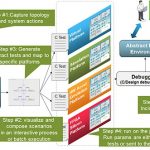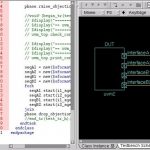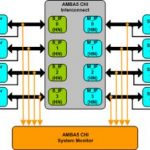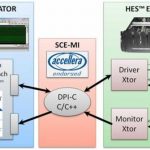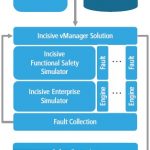Some time ago I wrote a DeepChip viewpoint on DVCON 2014 in which I praised a Mentor paper “Of Camels and Committees”. The authors argued that while the UVM standards committee had a done a great job in the early releases, the 1.2 release was overloaded with nice-to-have features with questionable value for a standard, particularly… Read More
Tag: uvm
Nine Cost Considerations to Keep IP Relevant –Part2
In the first part of this article I wrote about four types of costs which must be considered when an IP goes through design differentiation, customization, characterization, and selection and evaluation for acquisition. In this part of the article, I will discuss about the other five types of costs which must be considered to enhance… Read More
Moving up Verification to Scenario Driven Methodology
Verification complexity and volume has always been on the rise, taking significant amount of time, human, and compute resources. There are multiple techniques such as simulation, emulation, FPGA prototyping, formal verification, post-silicon testing, and so on which gain prominence in different situations and at different… Read More
Never Imagined So Easy Class-based Testbench Debugging
When it comes to debugging a design testbench organized in object-oriented style with objects, component hierarchies, macros, transactions and so on, it becomes an onerous, tasteless, and thankless task for RTL verification engineers who generally lag in software expertise. Moreover, class-based debugging tools have lagged… Read More
Experts Talk at Mentor Booth
It’s less than four weeks to go at DAC 2015 and the program is final now. So I started investigating new technologies, trends, methodologies, and tools that will be unveiled and discussed in this DAC. In the hindsight of the semiconductor industry over the last year, I see 14nm technologies in the realization stage and 10nm beckoning… Read More
Successful Venture of an Indian Global VIP Company
It’s rare that we find a truly Indian-based company operating globally in the semiconductor space. Although the ‘gold rush’ towards IP development in the last decade initiated many IP start-ups in India, today we rarely find Indian IP company names which are shining in the global arena. The story of services companies is different,… Read More
UVM Debugging Made Easy & Productive in Questa
As design complexity and size is increasing, SoC verification has become one of the most difficult and time consuming tasks in the design closure.UVM (Universal Verification Methodology, an accellera initiative) is one of the best verification methodologies that support common language, coherent strategy, clarity and transparency… Read More
Aldec increasing the return on simulation
Debate rages about which approach is better for SoC design: simulation, or emulation. Simulation proponents point to software saving the need for expensive hardware platforms. Emulation supporters stake their claims on accuracy and the incorporation of real-time I/O. A few years back, some creative types coined the term SEmulation,… Read More
Ensuring Safety Distinctive Design & Verification
In today’s world where every device functions intelligently, it automatically becomes active on any kind of stimulus. The problem with such intelligence is that it can function unfavorably on any kind of bad stimulus. As the devices are complex enough in the form of SoCs (which at advanced process nodes are more susceptible to … Read More
HLS – Major Improvement through Generations
I am a believer of continuous improvement in anything we do; it’s pleasant to see rapid innovation in technology these days, especially in semiconductor space – technology, design, tools, methodologies… Imagine a 100K gates up to 1M gates design running at a few hundred MHz frequency and at technology node in the range of .18 to … Read More



